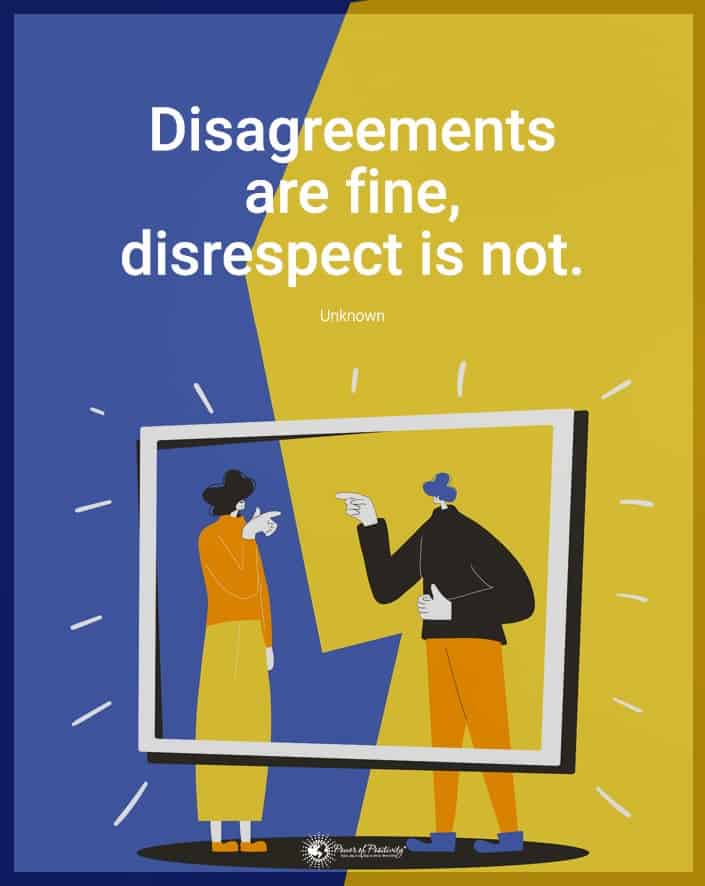“The word LISTEN contains the same letters as the word SILENT.” – Alfred Brendel. Was he talking about men?
We don’t need to regurgitate scientific studies to demonstrate that most men are poor listeners… ask the nearest woman to you.
On the other hand, some men consider themselves to be excellent listeners. Research can suggest it depends on their personality or cognitive recognition.
Many men are subpar listeners in relationships. Science has confirmed it multiple times.
So, why is this exactly? While we discuss why most (not all!) men are poor listeners from a relationship and gender angle, some of the reasons discussed transcend that relationship.
In so doing, perhaps we may be able to help two groups of people: (1) the potentially-troubled male listener and (2) women in a relationship with #1!
Let’s get after it.
Here are ten reasons why most men don’t “hear” women:

1. Expecting mutual agreement
See, women are often right…but not always. Sometimes in a committed relationship, it is common for a woman to “expect” a sort-of mutual understanding of various things.
This is a touchy topic since, in the beginning, the man seemed to agree with the majority of what the woman was saying. Once a relationship develops, however, a man has less “incentive” to concede and feels more comfortable speaking his mind.
It’s healthy for two people not to share the same opinion on matters—no need to argue. Just accept the other’s point of view.
2. Not “getting to the point”
Women are fond of iterating details that seem, to them, a way of heightening intimacy. Genuinely, this perspective carries merit. Facts in and of themselves are intimate. However, men are not particularly adept at staying “tuned in.” Men are more comfortable with the point of a dialogue than the finer details.
Perhaps the best way to go about this is to pose a question first and THEN fill in the finer details. This allows the man to “connect the dots” and should give ample enough time to form an opinion.
3. Trying too hard to impress
A man is already impressed with you, as he is already WITH you. As such, it is not necessary to continually “prove your worth” by rehashing things that seem impressive. By natural design, men feel obligated to provide for themselves and their loved ones.
Part of this means accepting that men are more comfortable with achievement and status amongst peers rather than with their partners.
4. He’s busy doing something
Not all men are excellent multitaskers. If a man happens to be preoccupied with something, it is best to be patient and allow him to complete the task first. It doesn’t matter if it’s a football game, a nap, or something else.
Be patient and make sure your man is ready to listen.
5. Insistence on venting
Venting is something that men can be tremendously uncomfortable with. The reason is that, while we want to support you, we’re a bit taken aback by the slew of information that is being directed towards us. Again, men are not as comfortable with engaging in emotional dialogue as women are.
Chalk another one up to evolutionary design.
6. Expecting mutual interest
This one is somewhat similar to the problems with assuming mutual agreement. Many (many) couples already have a solid understanding of what makes the other person “tick.” However, when a novel situation arises, it may be tempting to revert to that honeymoon phase where we both anticipate a consensus on just about anything.
7. He’s confused
Men are very linear thinkers, in general. Women have a talent for constructing abstract thoughts and subsequently verbalizing them. When men are caught up with a whirlwind of competing thought processes, they are easily confused; finding it difficult to sustain attention and deliver appropriate feedback.
Give some time and space, let him compose his bearings, and then explain what’s going on.
8. Real or perceived “nagging.”
Here’s another touchy topic. What women perceive as appropriate dialogue, a man can construe as pointless. Because men are not as good of listeners, we’re more apt to label such a one-way conversation as “nagging.”
Many reasons can be attributed to this perception, mainly that men are sometimes unequipped to engage in conversation beyond the typical. Regardless, it benefits both persons to “check-in” to ensure mutual understanding. It helps to cut off any potential distractions as well.
9. Expecting “friend-like” communication
For the most part, two people in a relationship communicate very differently than with other people. Women seek to be understood more than men do, in general. As such, female conversations with female friends and associates are bound to be more laden with empathetic emotion and mutual understanding.
However, carrying this anticipatory expectation into a dialogue with a man rarely results in something constructive. As mentioned, men view the overall point of communication differently than most women.
10. And then there’s texting
Not much elaboration is needed here. Texting about anything other than trivial matters is not a good form of communication between two people involved in a relationship.
Hopefully, with the differences cited here, we can all understand why.
Communication is one of life’s most essential skills. It involves speaking, writing, and listening. Part of being a good communicator is being a good listener. Listening is more than just being able to hear. Hearing and listening are as different as night and day. Listening requires you to use your mind and emotions. Hearing, on the other hand, requires your ears. If you want to become a better communicator, you must first learn how to be a good listener.
What Is Listening?
Listening is defined as paying attention to someone to hear what is being said. To hear what someone has said and understand it is serious, important, or true.
Listening is hard work. It requires concentration and focuses on the person speaking to you. It’s easy to fall into poor listening habits, especially when in a comfortable relationship. The highest level of listening is called active listening. Active listening is the most effective way to communicate. An active listener can listen to what a speaker says and discern how they feel.
What are some qualities of a good listener?
Good listening isn’t just being quiet-A good listener leans in and listen with their body. They make eye contact. They are curious to get more insight. A good listener may say things like “Ok” or “I see” to communicate their interest.
- They ask good questions-When you’re finished talking. Good listeners ask you questions to clarify or to be sure they understand what you said.
- They stay positive-A partner who is a good listener makes you feel supported and loved. You feel safe telling them difficult things because you know they listen to you.
- A good listener gives feedback- Sometimes, you want your partner to listen to you. Other times, you want their thoughts. It would be best to communicate what you wanted before you talked to them. You could say something like, “Hey, I want to share something with you, but I’m not looking for a solution. I need to talk it out.” Of course, it won’t be helpful if they sound critical when they give advice.
I heard what you said, but I didn’t listen to you.
When you’re in a relationship, your partner may hear what you say, but they don’t listen. Why is that?
For one thing, communication isn’t straightforward. It can be time-consuming and frustrating. Here are some other reasons communication breaks down.
- Your partner didn’t understand what you meant or what you told them got mixed up in their mind.
- You forgot some crucial details or background information. Your partner may have been ready to listen, but somehow the data wasn’t all there.
- They got distracted by their thoughts or the world around them.
- What you thought you said meant something different to your partner, mainly if you used words that weren’t familiar to them.
Figure out the barriers to helping men hear
Figure out what hinders your partner’s listening. Once you understand the barriers, your communication will improve. When you’re in a conversation, take note of these things.
- Does your partner seem distracted? Ask them if there is a way to help them get rid of the distractions.
- Should you repeat something you said? It can be irritating to repeat yourself, but repetition helps avoid mistakes.
- Keep the message simple and to the point. Avoid tangents and extra information that aren’t pertinent to the conversation.
- Be sure to include background information and essential details.




















